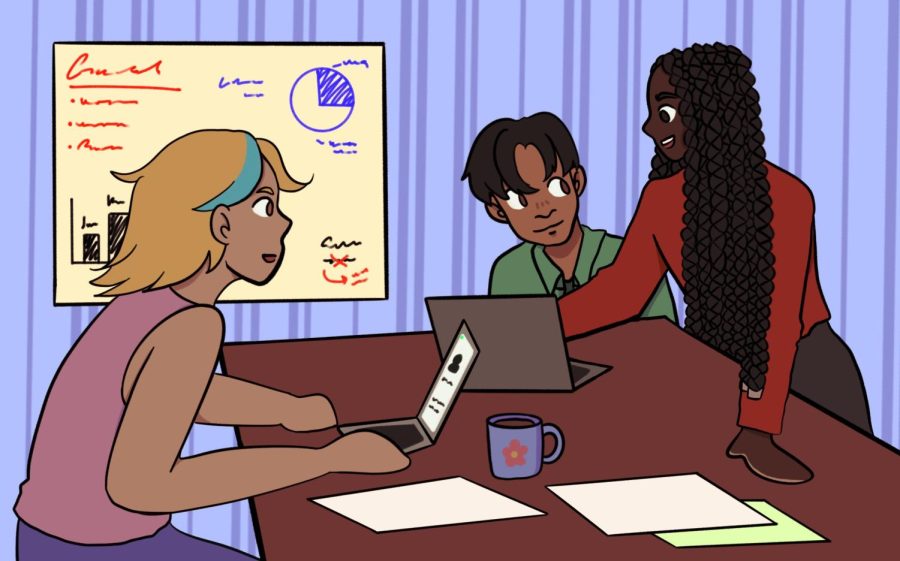iSchool Inclusion Institute moves to UT, increases opportunities in informatics
April 28, 2022
UT will host a program encouraging undergraduate students from underrepresented communities to engage in information sciences starting this summer.
The iSchool Inclusion Institute is a program that features two summer institutes at a host university, previously the University of Pittsburgh, alongside a 20-month research project with the goal of encouraging students to learn research and leadership skills. Eric Meyer, dean of the School of Information, said the program is moving to UT because of the University’s strong informatics department and location.
Kayla Booth, director of the i3 Institute, said one of the appeals of moving the program to the University is the School of Information’s human-centered approach to informatics.
“Information sciences are right at the intersection between people, information and technology,” said Booth, an assistant professor of instruction at the School of Information. “Technology can be a really powerful tool, but really centering on the human piece is enormous.”
Jackelyn Cach, who attended the i3 Institute with the University of Pittsburgh in 2019, is now a platform advisory analyst at Accenture. She said her experience at i3 helped settle her doubts about pursuing a degree in information sciences.
“I had the chance to learn more about information sciences, how it has become important and how I can contribute to research,” Cach said. “i3 really helped me realize the path I wanted to take.”
Booth said it is crucial to have diversity in the informatics field, which is why the i3 Institute is important to her.
“To me, the only real way for this interdisciplinary space … to reach (its) potential and have (the desired) impact in the world is if we have a wonderfully diverse group of professionals,” Booth said.
Meyer said students do not typically study information sciences until they are in graduate school.
“We’re looking for ways to attract people at an earlier stage in their life to be able to understand the impact information has on the world,” Meyer said. “(i3) lets students get a hands-on way of being able to understand the impact information is having on the world around them.”
Booth said the research projects are student-led, which gives students experience with the research process.
“I think there’s a real power in building and owning something from start to finish that you’re interested in,” Booth said. “Those are applicable skills, being able to work on long-term projects from start to finish.”
Daniella Carrera, a graduate student of media arts and sciences at Indiana State University, said at i3 she learned that informatics skills are also applicable to other majors.
“The institute was not just for someone in information sciences. … It’s for anyone who wants to learn about the research process,” Carrera said.
Carrera, who got her undergraduate degree in journalism, said she liked collaborating with people from different disciplines.
“I was able to collaborate with other people who did know a little bit more about science and technology,” Carrera said. “When you can collaborate and introduce different methodologies and different thought processes, then we can produce something that is just more in-depth.”












